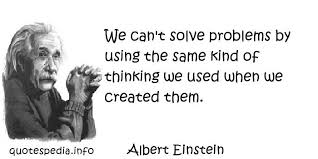INTRODUCTION
In Part 1 of this blog post, I discussed five of the six typical objections to supporting investments in supply chain risk management programs and I shared specific remedies. In this post, I cover the last objection: Outmoded thinking and assumptions.
To review the objectives and key points of Part 1, areas of investment resistance tend to be related to professional incentives, psychology, misperceptions about costs, and a lack of awareness and education. Understanding the role that each of these factors may play and being prepared to neutralize the resulting objections is key to moving your program forward. The first five objection categories discussed in Part 1 included (1) incentives and human nature, (2) dependence on supplier collaboration, (3) perceived cost of achieving supply chain visibility, (4) conflicting objectives, and (5) difficulty in valuing risk management. All objections are discussed in the Ultimate Guide to Supply Chain Resiliency Program Success in the broader context of building a complete business case for a supply chain resiliency program.
Perhaps the biggest challenge in modernizing an organization’s approach to supply chain risk management and resilience practices is overcoming the plethora of outmoded lines of thinking and outdated assumptions. There are several biases, attitudes, and dangerous assumptions underlying common supply chain practices that can devalue or not properly credit risk and resiliency measures. Here are some important myths to be aware of and have a plan to address or contain.
The hero syndrome
Frequently there is a misplaced but abiding faith that “operations will always save the day with another extraordinary diving catch” and that the commodities team can “gut” their way through a problem. Even if this is the case, it’s a very expensive approach to risk mitigation.
“It’s better to be lucky than smart”
Another dubious refrain is “we got lucky that time” rather than recognizing that, more often than not, it was not pure luck that an impact was not felt, but the actions that somebody took to select a supplier located on higher ground or to find an alternate source. Identify the real (proactive) heroes and reward them.
The ostrich approach
Some supply chain stakeholders are under the impression that they can rely on their suppliers to address risk issues, financial, CSR/ethics, etc. in the sub-tiers. According to ChainLink Research, however, audit and regulatory visibility fall off after tier 2. There may be little awareness of the need to take an end-to-end approach which is a fundamental assumption of most supply chain resiliency programs.
The annual planning assumption
Supply chain risk management is treated like other strategic planning exercises, typically with an annual or at the most semi-annual cadence. The reality is that risks are dynamic and constantly changing. You need a process the starts with this assumption.
Rearranging deck chairs
Many stakeholders believe that large disastrous events affect an industry equally. The thought is “we all got hammered and there was no way for anybody to escape the impact so why worry or do anything differently.” There is ample evidence that prepared firms are impacted less and recover quicker and can even use their resiliency to achieve competitive advantage.
Faith in randomness
There is also an assumption that risks are typically isolated and not interlinked. There may be little appreciation for how a resiliency program can ascertain how vulnerabilities that pop up in one area may be symptoms of wider and more systemic issues
The black swam misconceptions
Related to faith in the randomness of events is the major pre-occupation with the so-called “black swan” events (i.e. infrequent disaster scenarios). This has two potential negative impacts on the perceived need to invest in a supply chain resiliency program. First, many believe these “acts of gods” by definition can’t be predicted and planned for, so preparation and mitigation are futile. Rather, these are frequent scenarios that catch supply chain professionals uninformed/unaware. There are in fact early warnings and information foreshadowing most events, yet most organizations have no access or visibility to that data. Second, these events distract from the focus that a resiliency program applies to the smaller, but almost daily, supply events that in aggregate have a larger business impact.
CONCLUSION:
It’s important to be aware of these myths and get ahead of them by talking openly about misconceptions and providing evidence to the contrary or rationale for the new, modern supply chain resiliency line of thinking.





